PC
1960s France. Madame Solange runs a brothel in the seedy area of Mériadeck, while professor Victor Douslavon teaches the ladies how to read and write. Meanwhile your character, 15-year-old amateur sleuth Eugène Faury, arrives in Bordeaux in search of his uncle Flavio. So begins a twisting narrative which covers murder, illegitimate children, and the world’s oldest profession.
It sounds suitably intriguing, as point-and-clicks go. But first impressions count, and Chronique des Silencieux stumbles from the off. The introduction is wildly confusing. Your notebook of leads tells you that a man named One Armed Hervé came to threaten Madame Solange and that an inspector wanted her to help. Help with what? It’s unclear. After talking to Solange and the inspector, you find out that Hervé is dead and your missing uncle is the prime suspect. All of this happens without Eugène — or you — having any context about who Hervé is, yet it’s revealed to you via dialogue at the police station ten minutes later. Is Eugène a psychic or does Pierre Feuille Studio need to address its narrative markers?
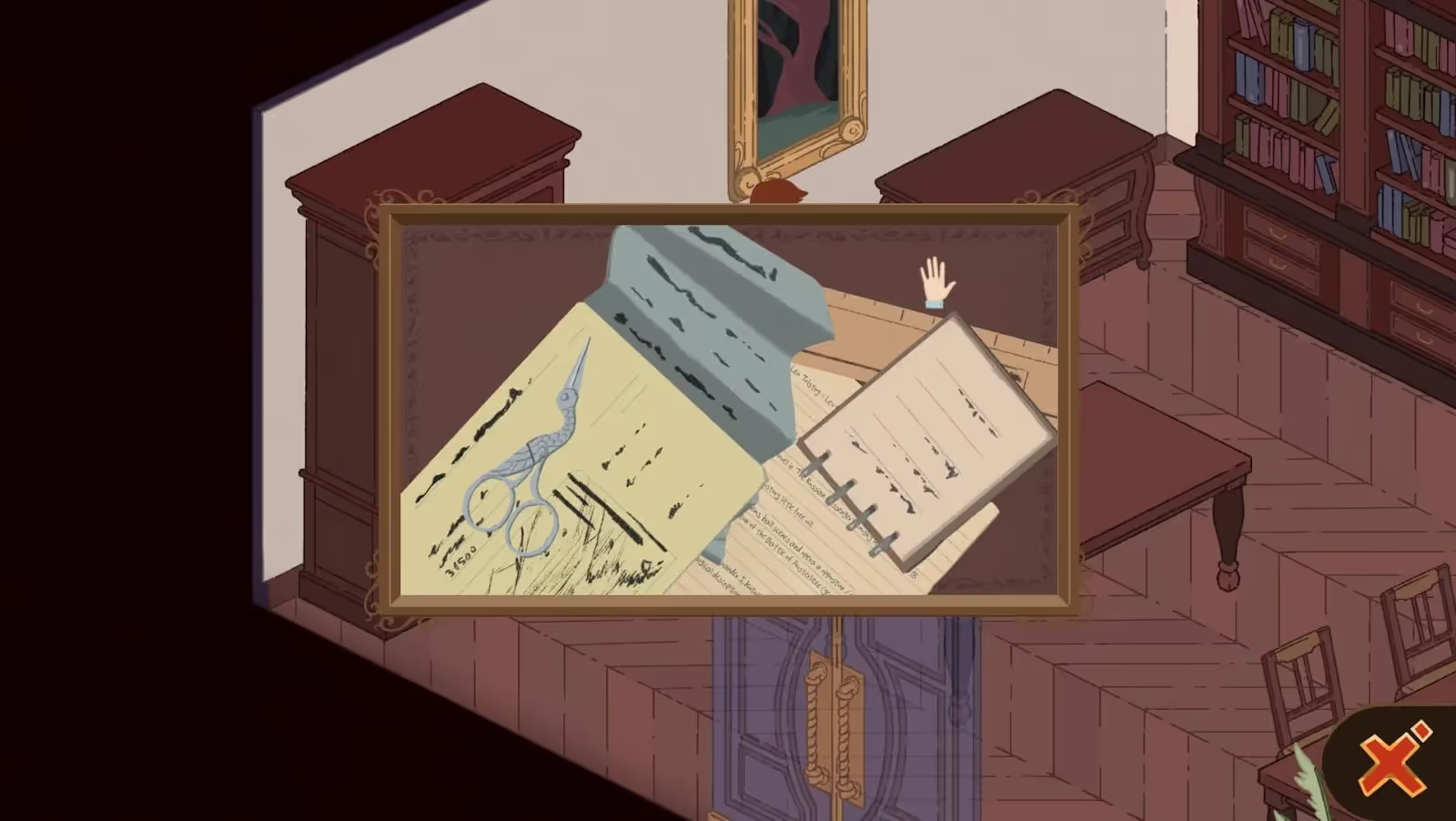
The inconsistent plot isn’t helped by the presentation. A letter from your mother — the first thing you’ll read when you start the game — is riddled with typos and broken English. It’s not the ideal start to a primarily text-based tale and unfortunately it gets worse. The localisation has spelling and grammar issues throughout; there is rarely an interaction free from mistakes, and this continues into the objects you find. It could potentially be downplayed if the core gameplay didn’t hinge on you scouring documents and comparing them to written testimony from characters.
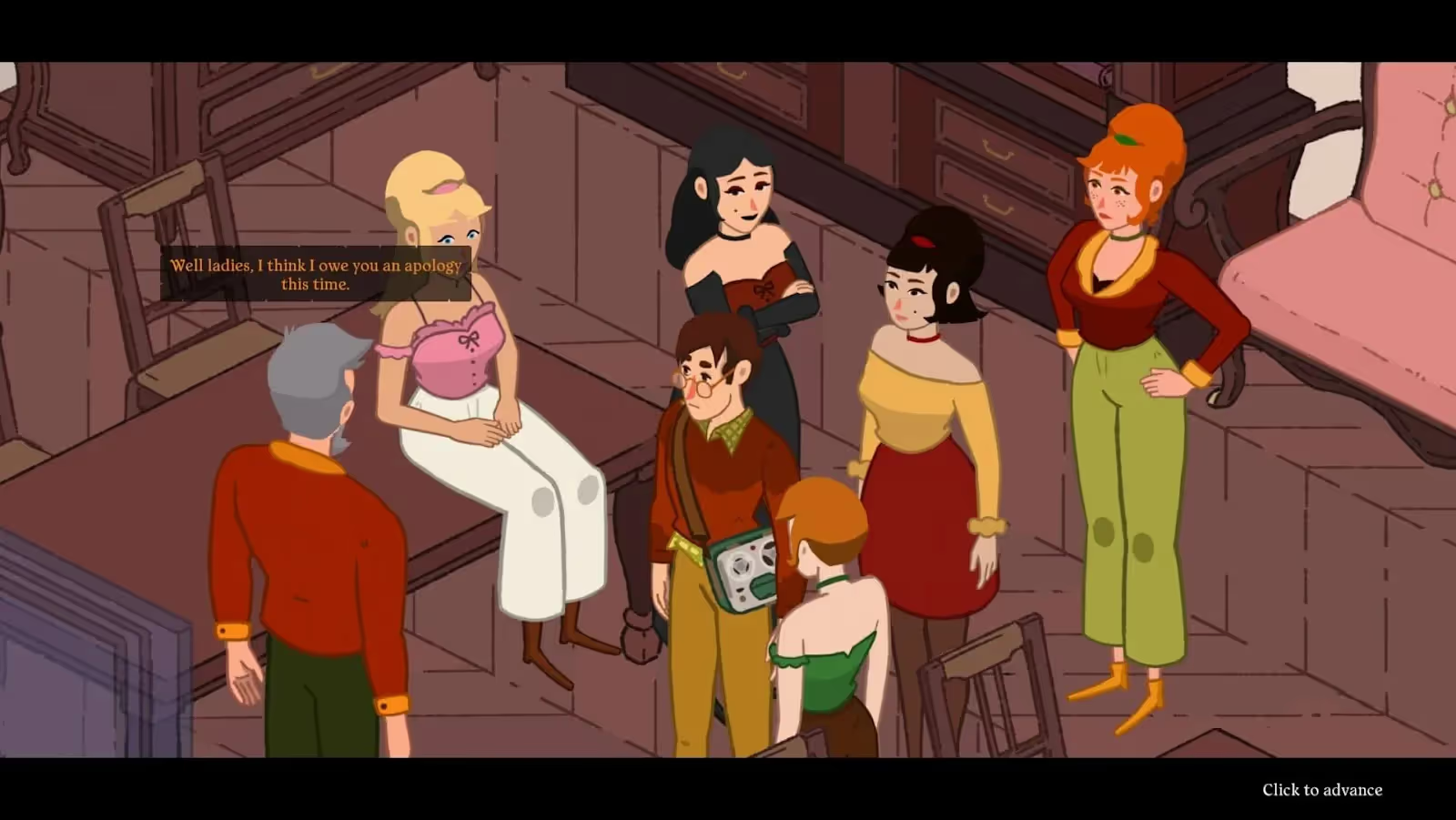
It appears that the game wants to transpose the successful fact-checking element of the excellent Phoenix Wright series into a point-and-click filled with umpteen characters and topics. Ace Attorney and its sequels handled accusations by limiting the preamble to three or four paragraphs before asking you to pick an object to disprove what someone was saying. It worked because the narrative container that each encounter occurred in was small, but not so small that you didn’t have to think a little about it, or follow some logical reasoning. In Chronique des Silencieux, every character you meet can have an opinion (read: testimony) on any other character or topic of note, generating literally dozens of potential testimony transcripts. And from there, you need to trawl through all of the physical documents you’ve picked up — police reports, lesson notes, share certificates, and so on — and find discrepancies between them and a testimony. You do this by selecting a sentence on a testimony and dragging it over to a sentence on a document which you believe contradicts it. The classic “red string” connector trope is wheeled out and to be fair, it looks interesting, like you’re a proper gumshoe solving a murder. Or in this case early on, some shady business dealing.
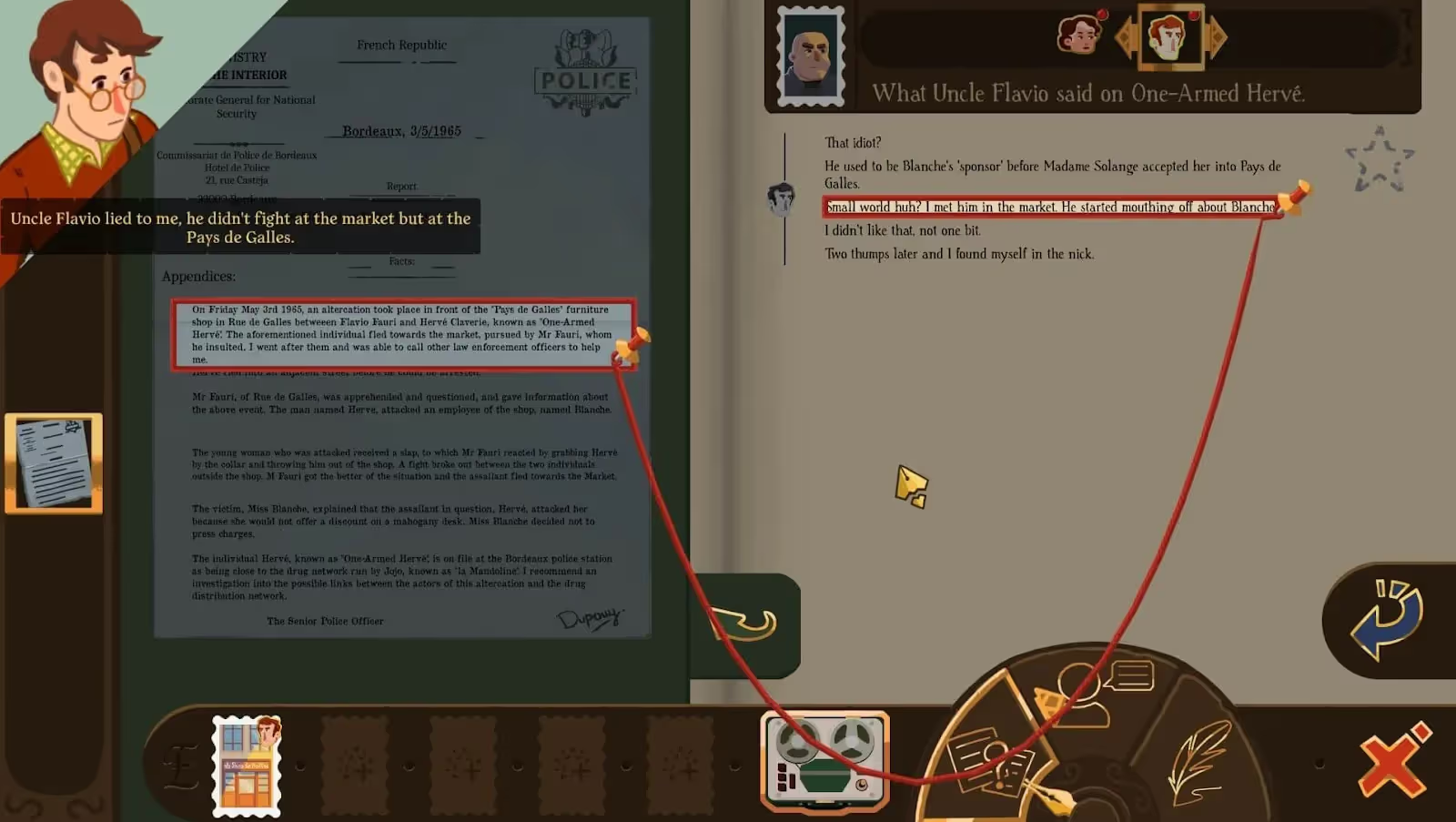
Except…not only is it not fun, it often doesn’t make sense. I got stuck in the prologue (yes!) because I wasn’t able to find a tenuous link between two sentences which — even after I referred to the solution — was illogical. I couldn’t fathom what the game was trying to get me to do. Was I supposed to link sentences that corroborated or contradicted each other? It wasn’t clear, and I certainly couldn’t work it out.
Once that element of deduction is complete, you then need to open a series of padlocks metaphorically sealing some new information about the case (again, this feels ripped straight from Phoenix Wright). You do this by using a combination of people and topics linked with a word “key”. Some of the keys include “Threaten”, “Liquidate”, and “Finance”, with the idea that these tie into hypotheses which you can make about a character’s motives. If you get it right, one of the padlocks is removed.
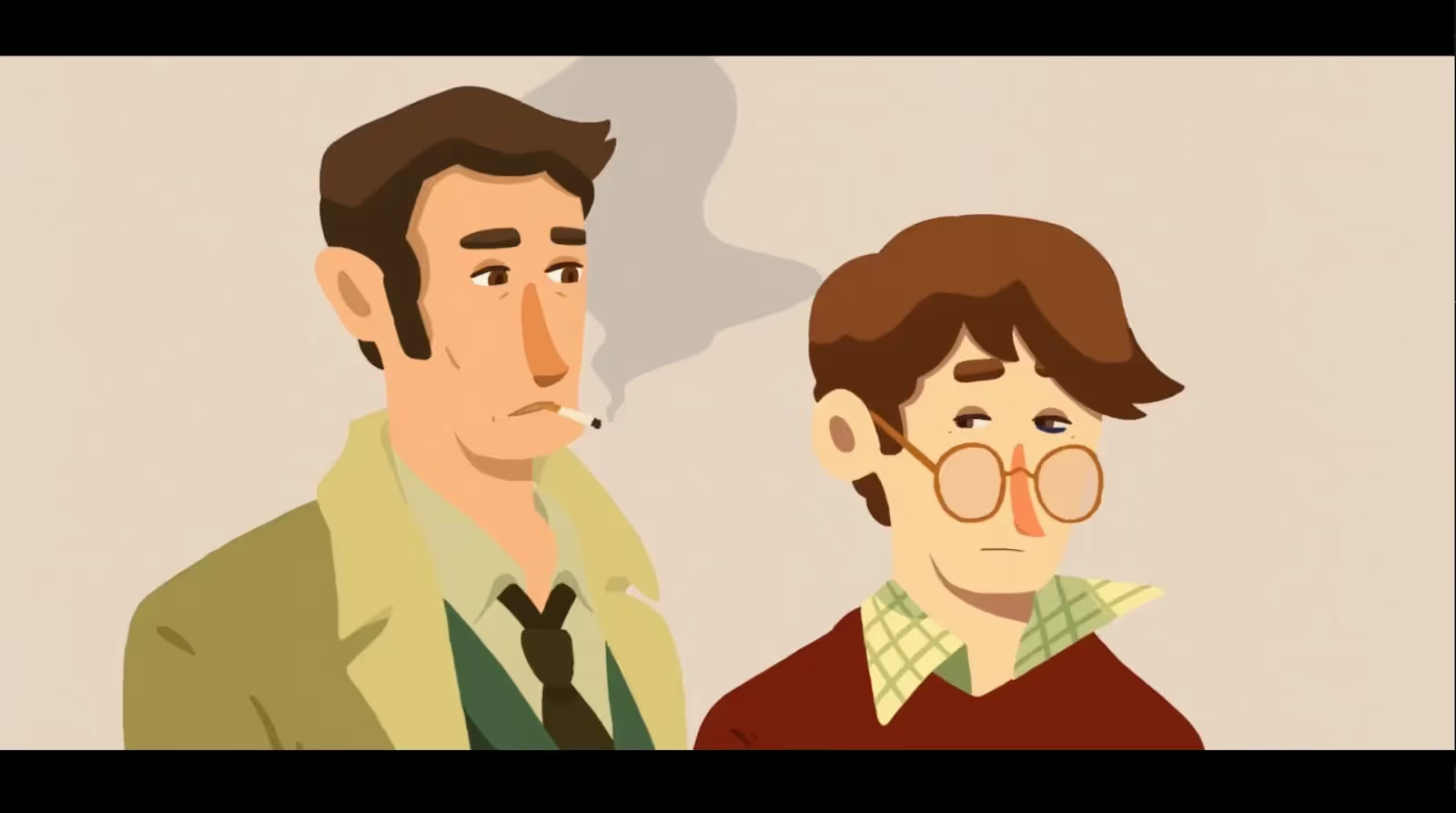
This part of the game makes a little more sense because the padlocked topic provides you with a couple of suggestions which are tied together — such as drugs and an antique shop. From conversations with characters you may learn that the antiques shop appears to be doing well despite having no customers, and if you manage to break into the shop you may end up discovering a hidden cache of drugs. At that point, you can use the interface to link the drugs and antique shop with the “Finance” key and open the padlock. Except, that might not work if you don’t pick the correct antique shop symbol, because one is called “antique shop” and one is the actual name of the antique shop. Why are both present on this screen? Who knows, but that cost me half an hour of head-scratching before I realised that my instincts were right, but the interface had stymied me.
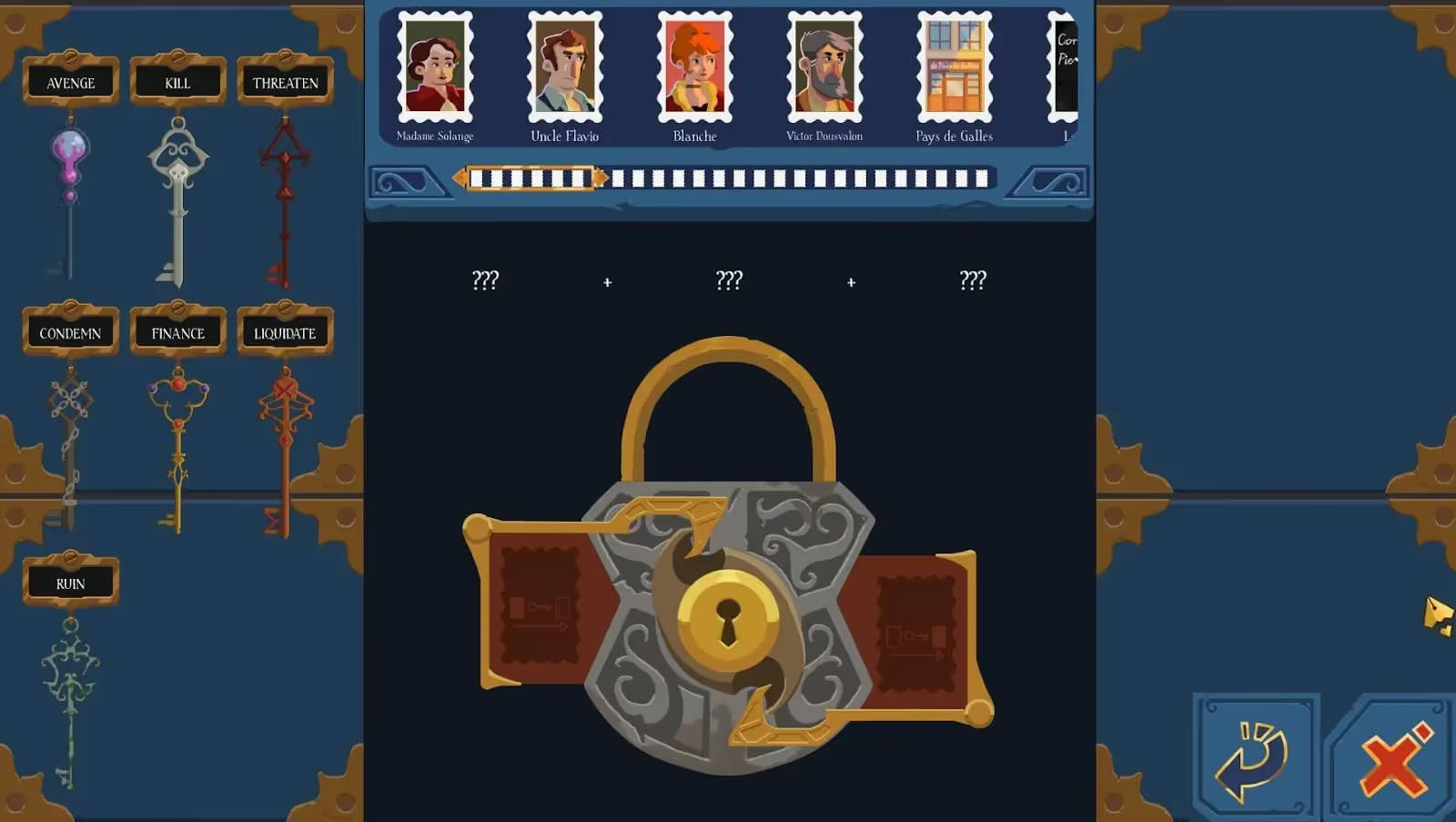
Once you’ve unlocked each hypothesis padlock of the person you’re investigating, you’re taken into a confrontation screen where you present all of the evidence to the suspect. If you haven’t completed all of your leads up to that point (i.e. spoken to everyone in each location multiple times and grilled them on every topic and person in your notebook), then the confrontation may not pan out as you’d hoped. During it, you’ll need to perform a — yes — Phoenix Wright-style takedown of what the interviewee says by again comparing it to something in your lists of testimony or objects. Get it wrong three times, and you’ll capsize the investigation. That’s the assumption anyway, since each time I got to the final guess the game stepped in and the city detective — who also acts as the game’s hint system — steered the conversation to the right place, without explaining the exact link I’d missed. You might pick a sentence from the correct document, but if it isn’t the right sentence, you’ll fail. It feels mightily unfair, especially since any hints you use and things you get wrong impact your game score at the end of each chapter.
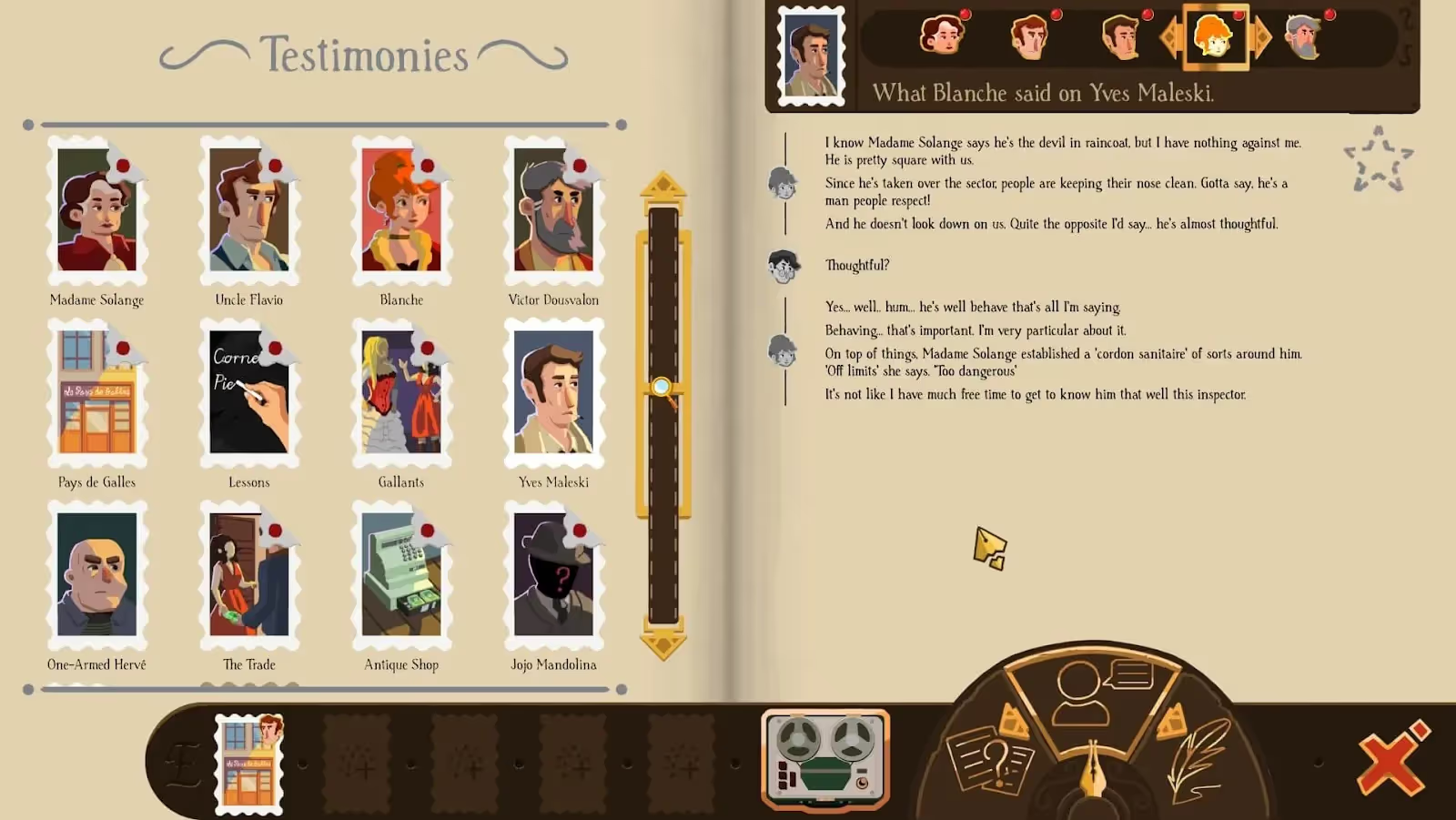
The problem, I think, is the scope of the investigative work you’re being asked to perform. I appreciate the ambition, but the reason good detective games and point-and-clicks work well is because they help the player feel smart. Filter down the possible options to a half-dozen, all clearly signposted, and you’ll eventually work things out. Otherwise you’re left trying to combine objects which don’t make sense or, as is the case here, pages of vaguely similar sentences. Fail, and the game takes over and makes you feel even dumber. The studio’s love of the detective genre is apparent, but translating that to a fun, playable experience is something that they haven’t nailed.
The locations and characters are hand-drawn and simple, but animated endearingly. Eugène is apparently 15 (or 16, in a later dialogue) at the start of the game, but looks and acts like a Gallic Richard Osman. This is a game where everyone has a red pointy nose like an alcoholic snowman, and where NPCs appear in locations without a trace of interaction, no more involved in the story than the kitchen table they’re standing in front of. Later on, they may have something to say, but until then they are mere set dressing which makes you question why they’ve been introduced at that point at all.
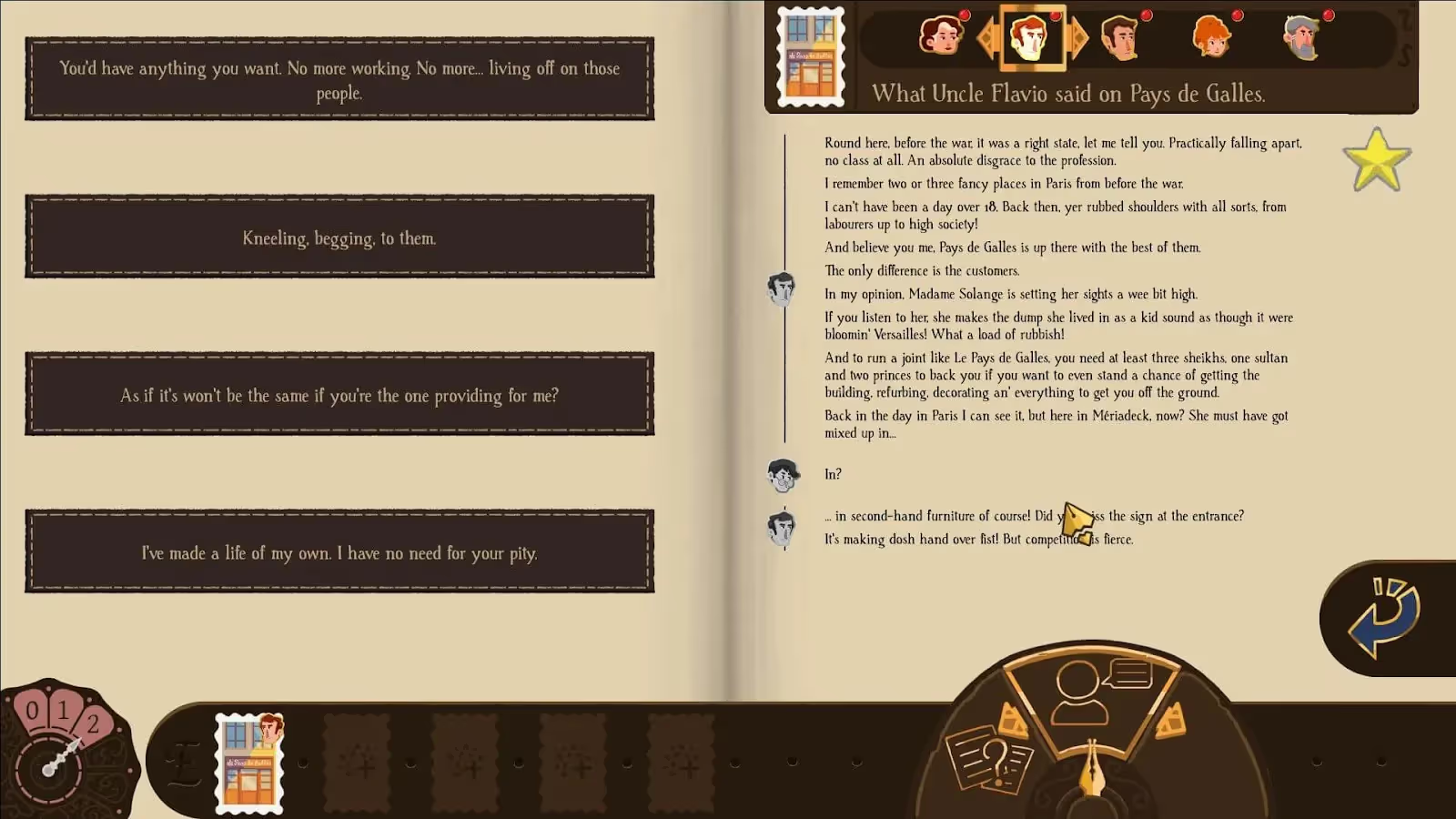
Despite the text being in English, there are also fully voiced cutscenes which are confusingly recorded in French with English subtitles. Navigating the city can be done with a mouse or keyboard, the latter being preferable. But everything looks and feels flat. Some of the characters have a bit of personality about them but anyone who isn’t named seems to be a copy of the next person with little to distinguish them. Their main purpose seems to be churning out a ton of dialogue which may or may not end up in your notebook. A more interesting deviation from your standard inventory is a tape recorder which you can use to capture music — from whistled tunes, gramophones and the like — and then play it back when you think it’s needed to progress. It’s essentially another item to solve puzzles, but with a bit more creativity; along with the mellow soundtrack, it’s a rare bright point in the game.
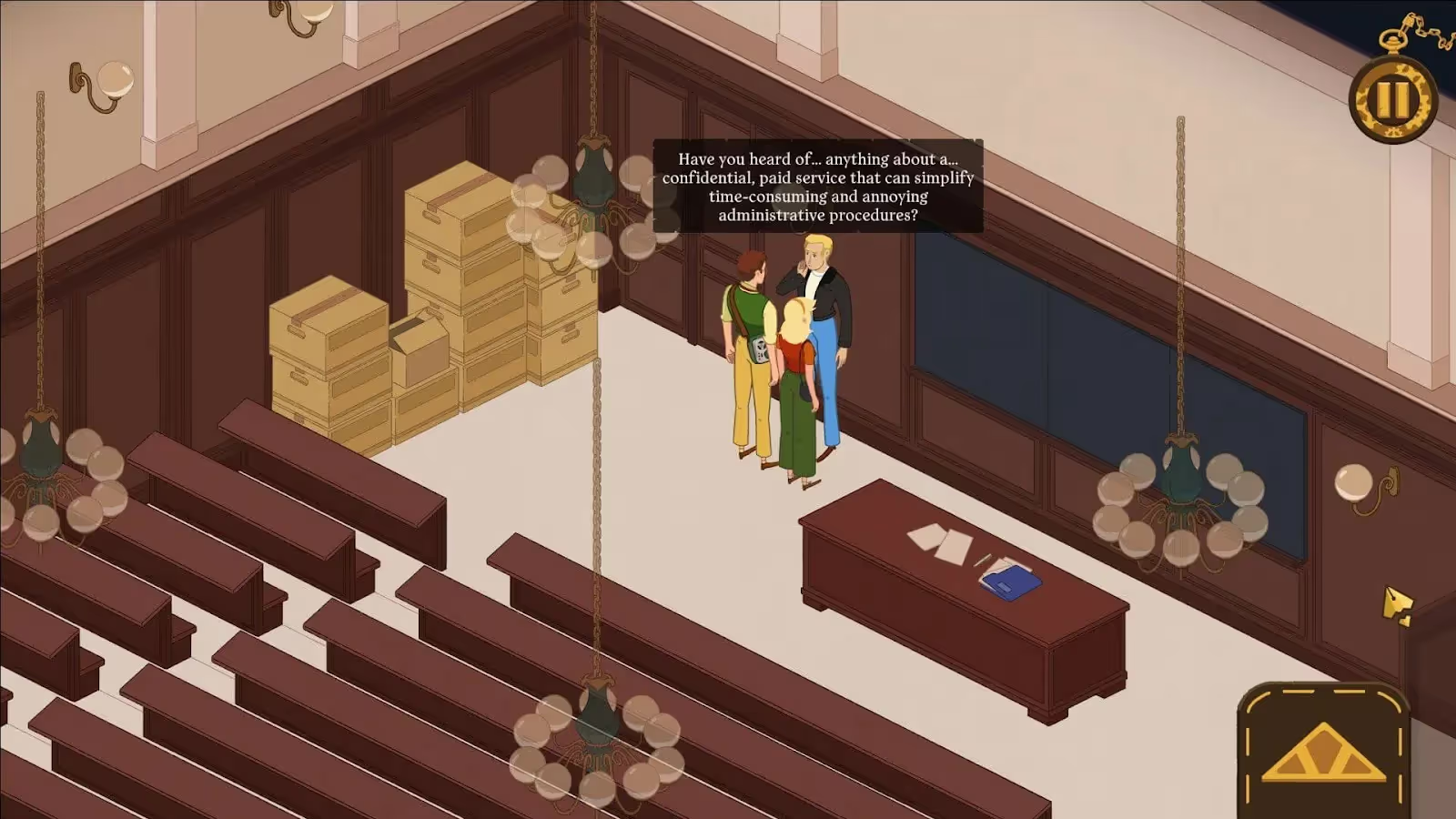
I don’t speak French so can’t comment on how well proofed that language version is, but the English translation is pretty poor. There are seeds of intrigue and history here such as discussing sex work in France in the 60s and 70s, French history and the obligatory murder to solve, but it’s often lost in reams of uninteresting dialogue. At the end of the prologue there’s a conversation between at least five different people which takes what feels like ten minutes to cycle through, and which could have been trimmed to a fraction of the time. The story may prove engaging to some players but I just couldn’t click into it, not least due to the lack of QA. Being dragged out of the atmosphere by typos is one thing, but Chronique des Silencieux crashed me to the desktop on a number of occasions, the simple act of searching a drawer being too much for the game to handle.
It feels like there are the early seeds of an idea for a good game here which makes its release now all the more frustrating. It has a brutal difficulty level caused in no small part by shonky translation, a story which resists accessibility, and mechanics which have been implemented better in a game series that’s over 20 years old. Another year of development and testing would potentially have made this a solid, innovative mystery but in its current state, it’s almost impossible to recommend.
You can subscribe to Jump Chat Roll on your favourite podcast players including:
Let us know in the comments if you enjoyed this podcast, and if there are any topics you'd like to hear us tackle in future episodes!



